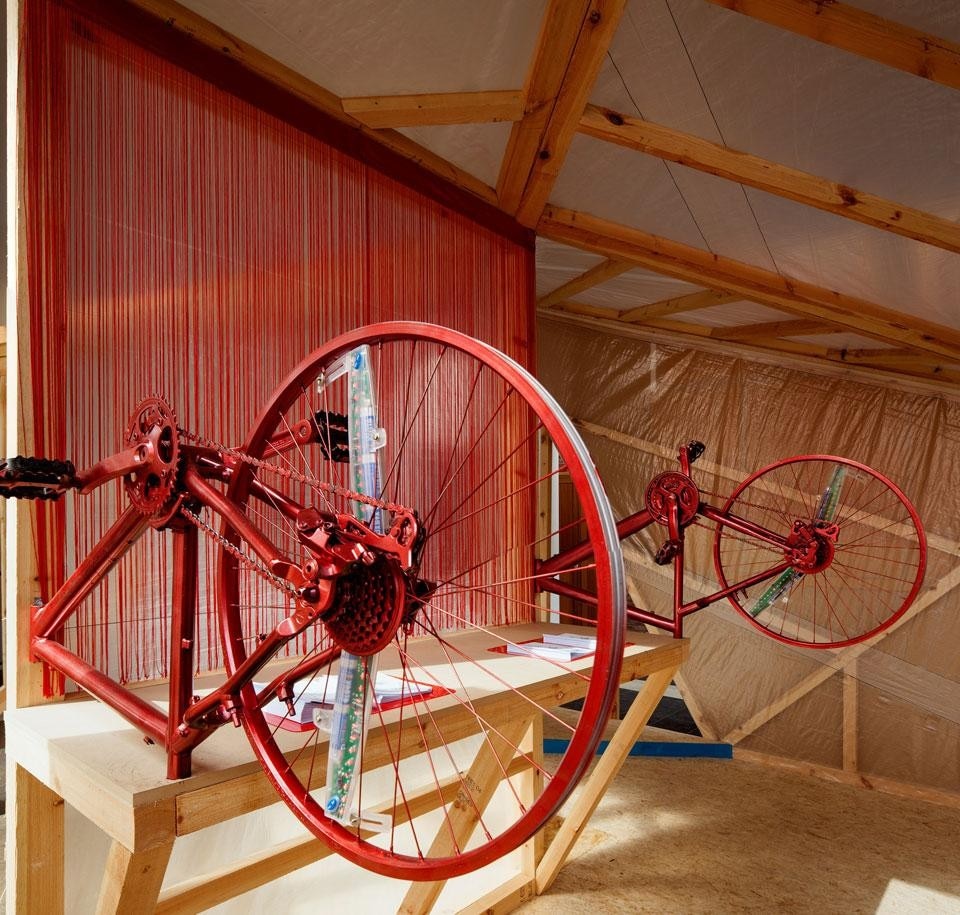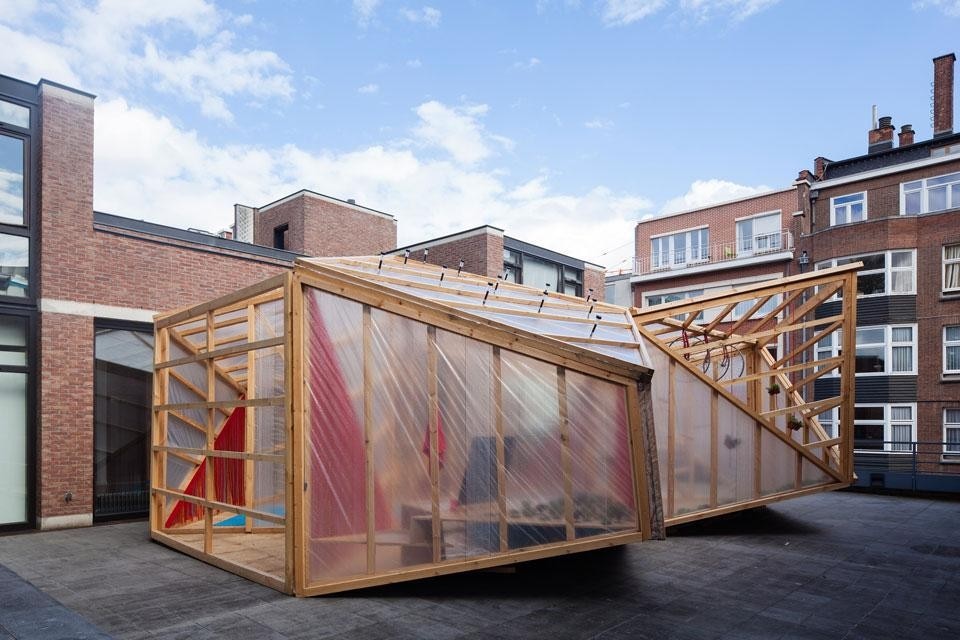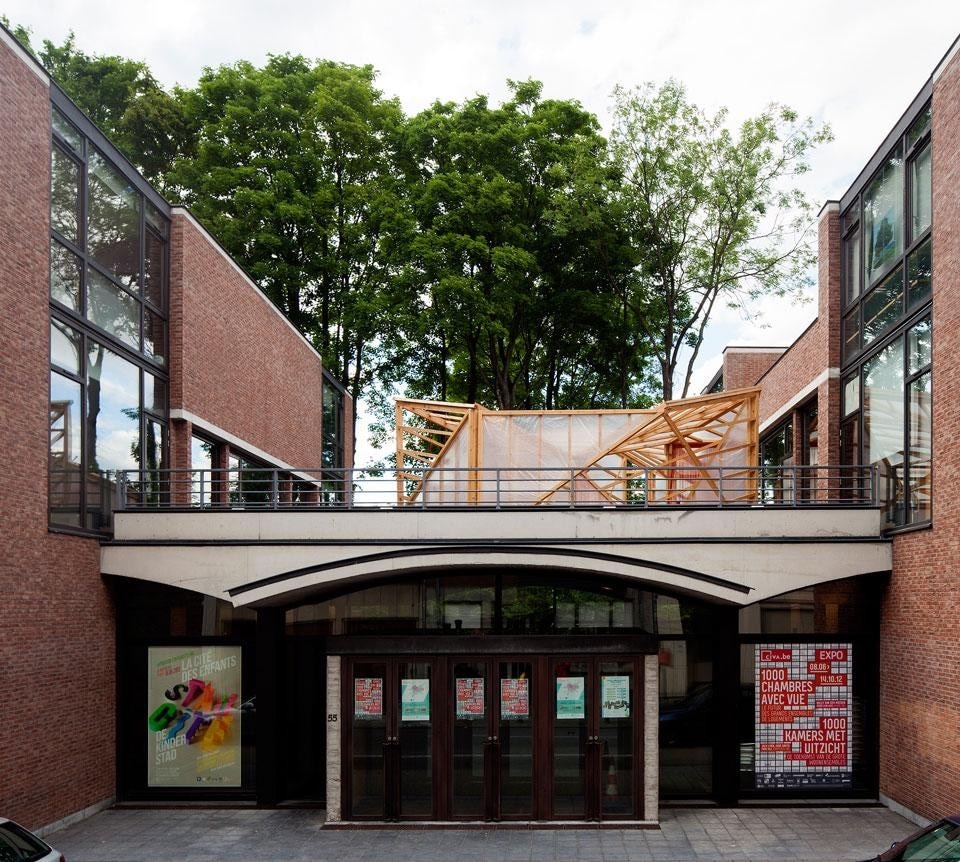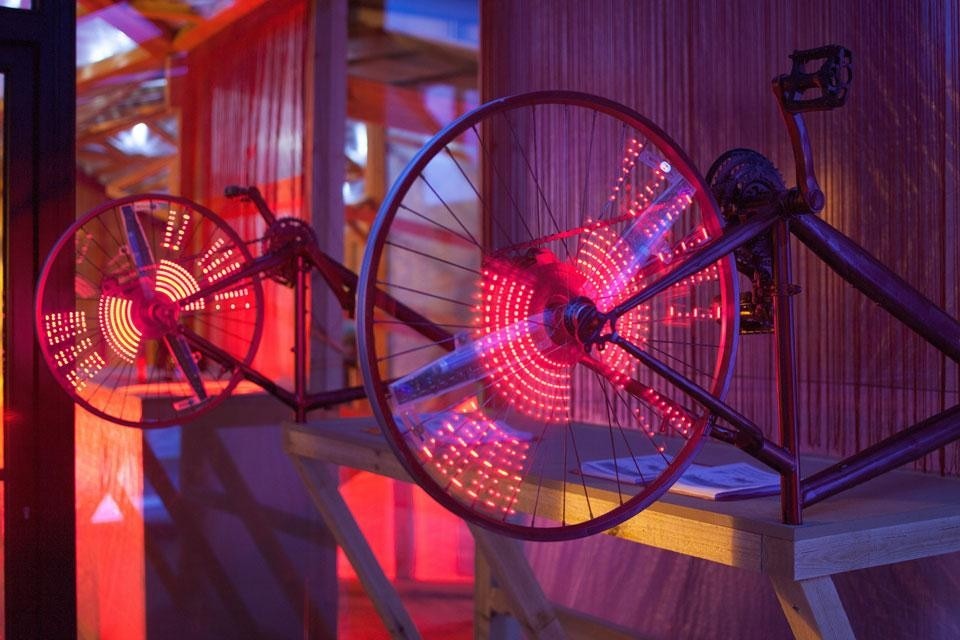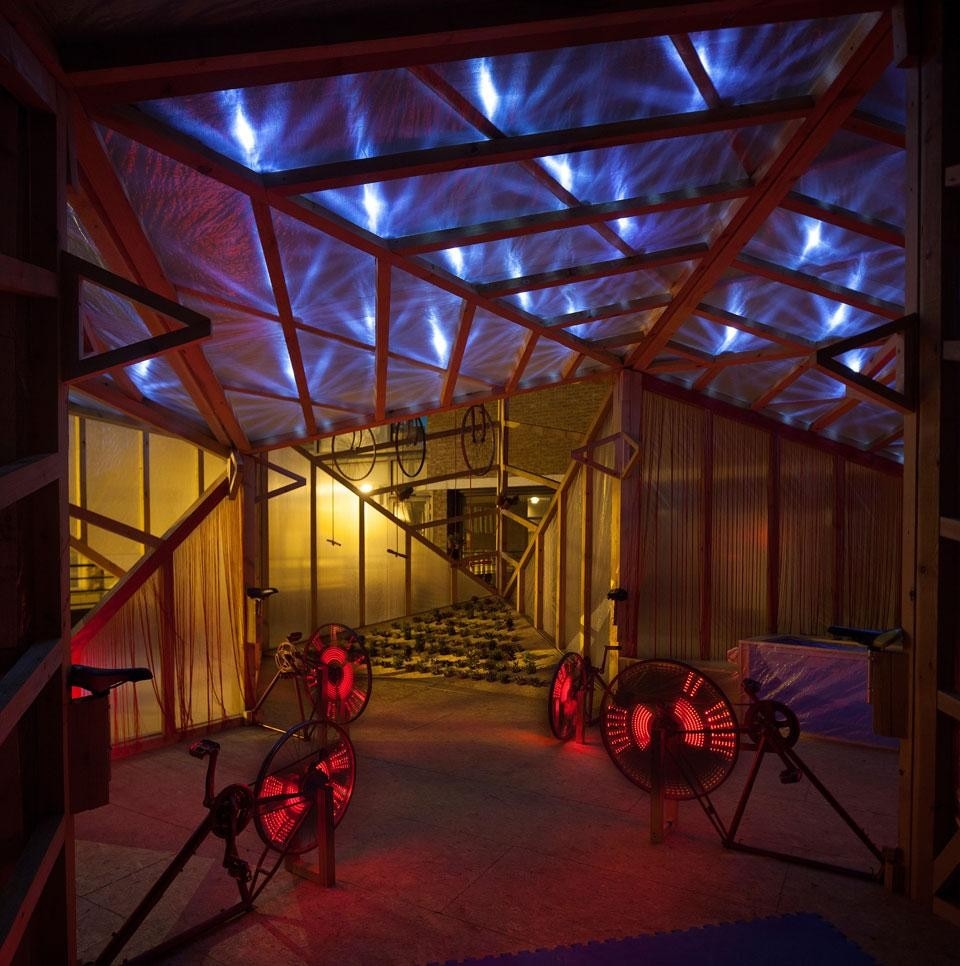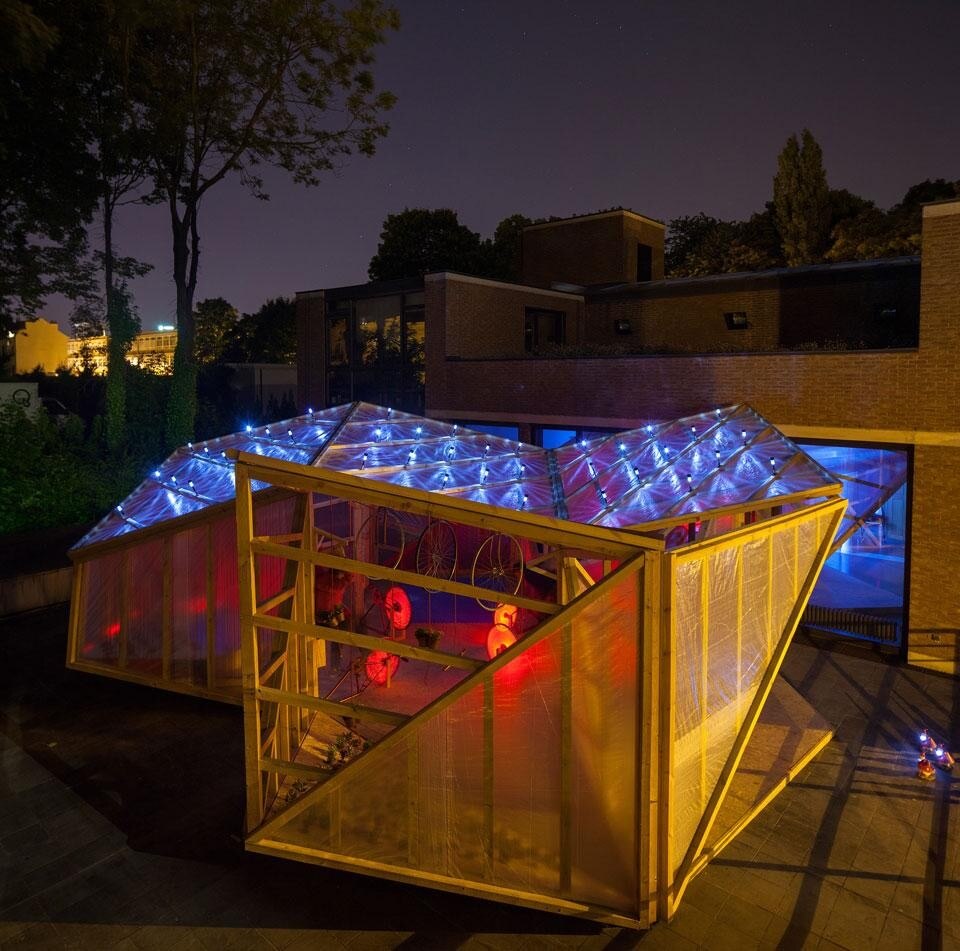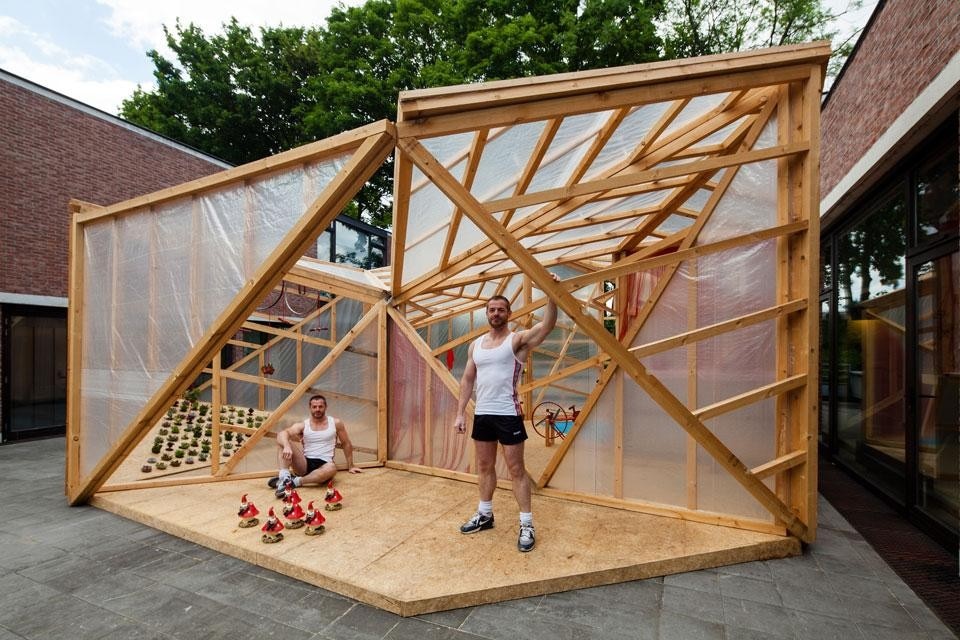The studio's most prominent sustainable urban-scale designs include an urban tree — a sort of mascot inaugurated in 2010 in the city of Alcalá de Henares with, at its base, bicycles that water the surrounding vegetation as local residents get some exercise — and a design for a square that produces energy with solar panels, the revenue from which funds the square itself, and with the energy-production management data on display.
Elii's current JF Kit House (Jane Fonda Kit House) installation at the terrace of Brussel's Centre International pour la Ville, l'Architecture et le Paysage (CIVA) in Brussels was conceived to create contents and build knowledge, all while pursuing studies into energy and sustainability in the domestic sphere. Part of the Paysage in Progress cycle, the proposal stems from research and is an invitation to turn the home into an energy-production unit. Elii have developed a workshop where people can experiment future habits and seek to balance geometry, dimensions and inclinations, and try out ways of altering the house to optimise energy yields, with the changes in the spatial uses being analysed at the same time. Sustainability requires the invention of a new culture, founded not only on technological solutions but also on changing habits.
What kind of new domestic culture can go hand in hand with sustainability? The JF Kit House is based on an expectation of total change and the invention of a new social organisation. It will take more to achieve this than the work of architects alone and complex multidisciplinary teams will be needed. One potential solution, a light, pre-industrial construction with a timber structure and assembled in the workshop, will occupy the building's terrace, increasing the city's density like true urban parasites.
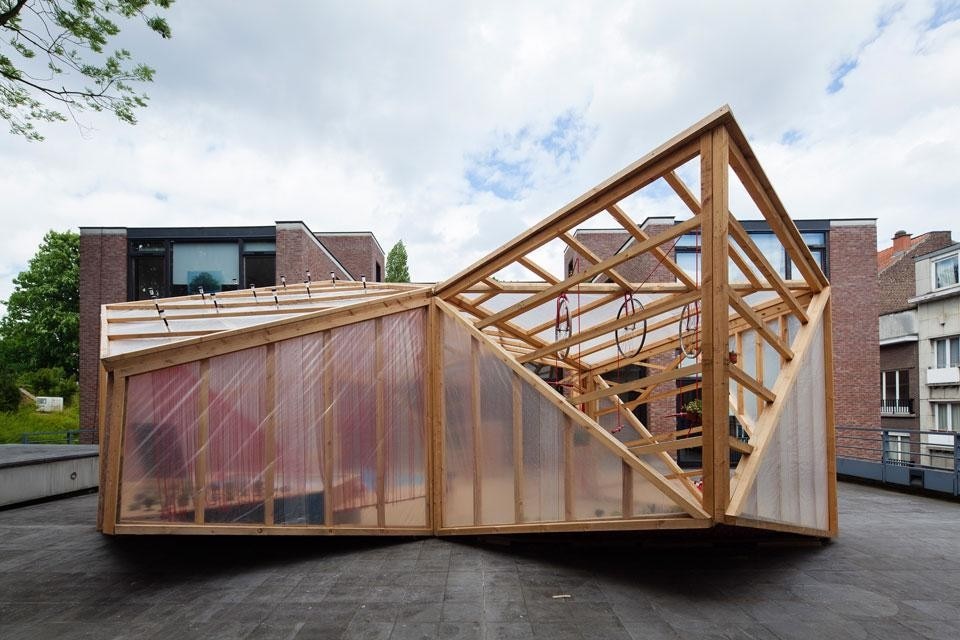
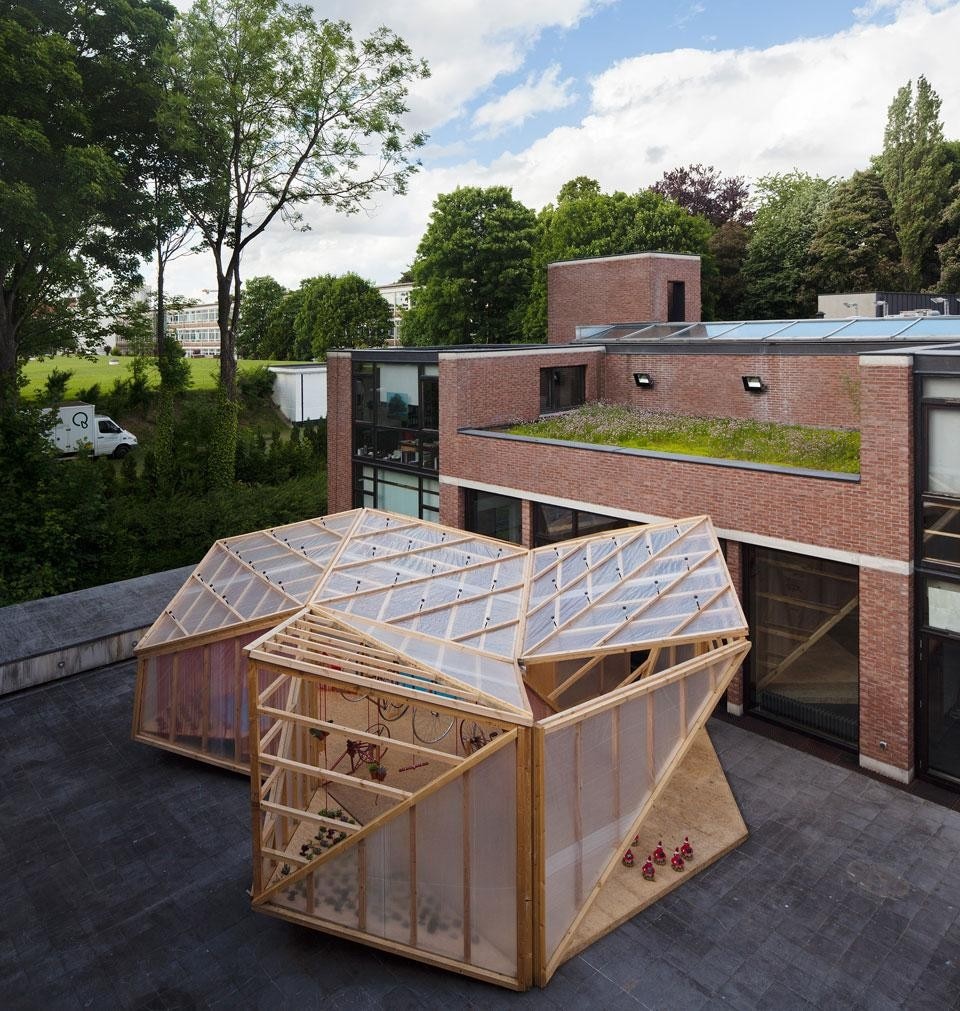
1) Urban Scale, by offering a replicable model based on a light and inexpensive building system that increases the density of existing urban fabrics. The prototype is based on a self-sufficient, off-the-grid, parasitic structure that can be added to existing roofs and walls.
2) Architectural Scale, by exploring changes in the domestic space, conceived as an active unit of energy production.
3) Economic Scale, by offering a model to "unblackbox" patterns of domestic-energy consumption via the use of different display and monitoring devices and the implementation of "energy-efficient mortgages" that could reinvest the savings made from domestic-energy production and deduct the sum from the payment of home mortgages. Energy has ceased to be invisible and become a consumer product.
4) Socio-Cultural Scale, by inscribing a new set of habits and practices in the political body.
The CIVA installation is designed to encourage discussion: in the modern tradition, the house of the future was seen as a solution. However, the JF Kit House is a workshop intended not so much to illustrate a solution but to test an idea, imagine the future and discuss it, while asking ourselves what direction sustainability should take, when combined with the domestic sphere. Ariadna Cantis (@aricantis)
The JF Kit House is based on an expectation of total change and the invention of a new social organisation. It will take more to achieve this than the work of architects alone and complex multidisciplinary teams will be needed
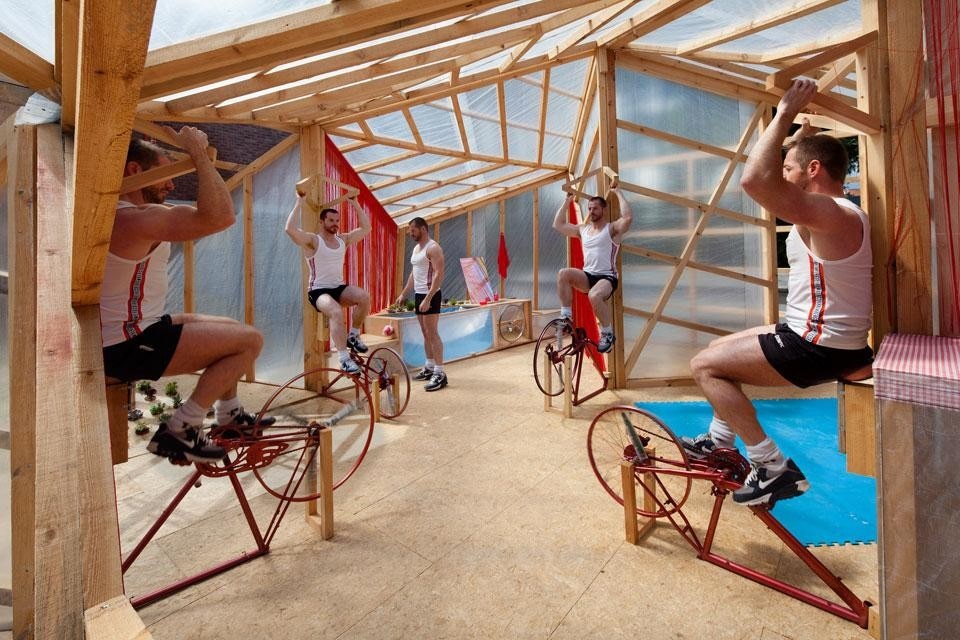
Architects: Elii (Uriel Fogué + Eva Gil + Carlos Palacios)
Video & Postproduction: Marta Gil
Photographers: Miguel de Guzmán
Landscape and engineering consultancy: Angela Melado + Álvaro Valle
JF·Kit Occupant: Frédéric Coosemans
Promoted by: CIVA (Centre International pour la Ville, l'Architecture et le Paysage), Brussels, Belgium.
Exhibition: 8 June through 23 September 2012
